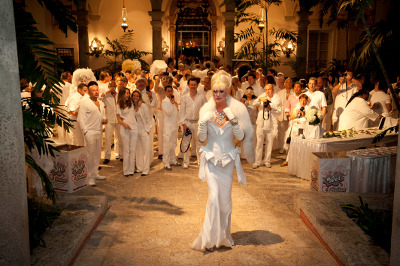
Photograph by Michele Sandberg/ZUMApress.com.
In the wee hours of a summer night in 1954, several Dade County deputies raided a handful of bars and nightspots throughout Miami and Miami Beach in what had popularly become known as their “pervert roundup.” Local law enforcement arrested nineteen “suspected perverts” that August night. Police, politicians, and those connected to the courts often used the term “pervert” to reference those thought to be homosexual or those who challenged gender norms, particularly by wearing clothes traditionally associated with the opposite sex. They raided those places that night just as they had in the past and would continue to do in the future. This was, by no means, an anomalous occurrence. “We don’t want perverts to set up housekeeping in this county,” claimed Dade County Sheriff Thomas J. Kelly. “We want them to know that they’re not welcome.”[1] Read more » [PDF 2.8 MB]
The author would like to express his gratitude to the whole crew connected to the NPS’s important initiative to promote and identify queer historical sites in the United States. Many thanks, in particular,
to Megan Springate and the two anonymous reviewers for providing such thoughtful feedback on an earlier draft of this essay.
[1] “Raiders Seize 19 in Pervert Roundup,” Miami Daily News, August 14, 1954; also see Fred Fejes, “Murder, Perversion, and Moral Panic: The 1954 Media Campaign against Miami’s Homosexuals and the Discourse of Civic Betterment,” Journal of the History of Sexuality 9, no. 3 (July 2000): 305–347.
The views and conclusions contained in the essays are those of the authors and should not be interpreted as representing the opinions or policies of the U.S. Government. Mention of trade names or commercial products does not constitute their endorsement by the U.S. Government.
Part of a series of articles titled LGBTQ America: A Theme Study of Lesbian, Gay, Bisexual, Transgender, and Queer History.
Last updated: August 11, 2017
